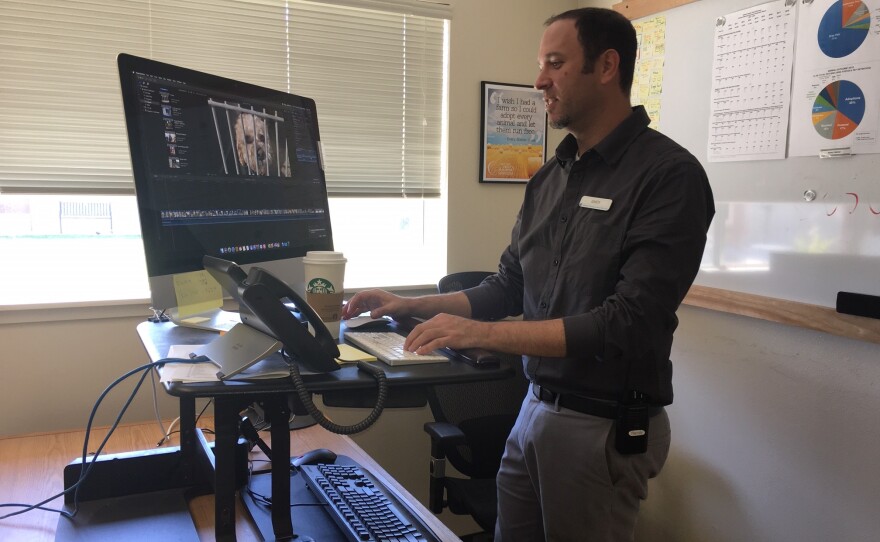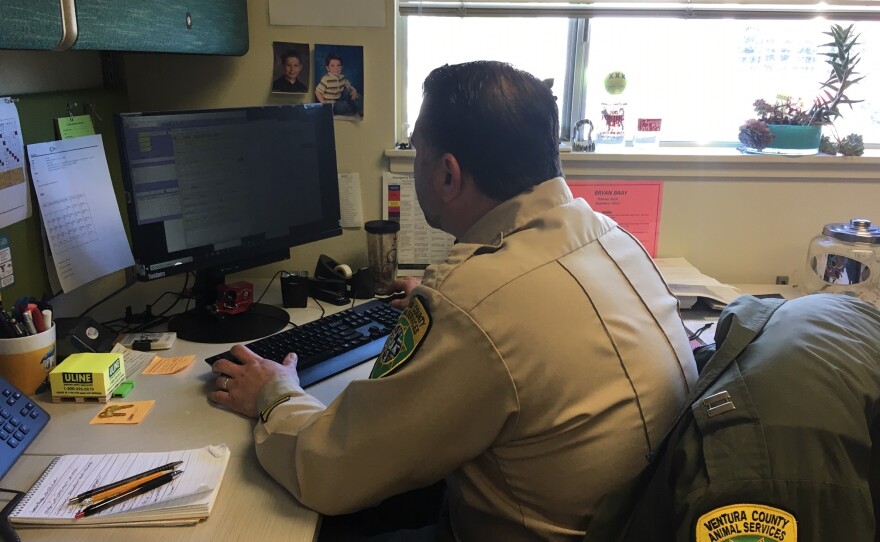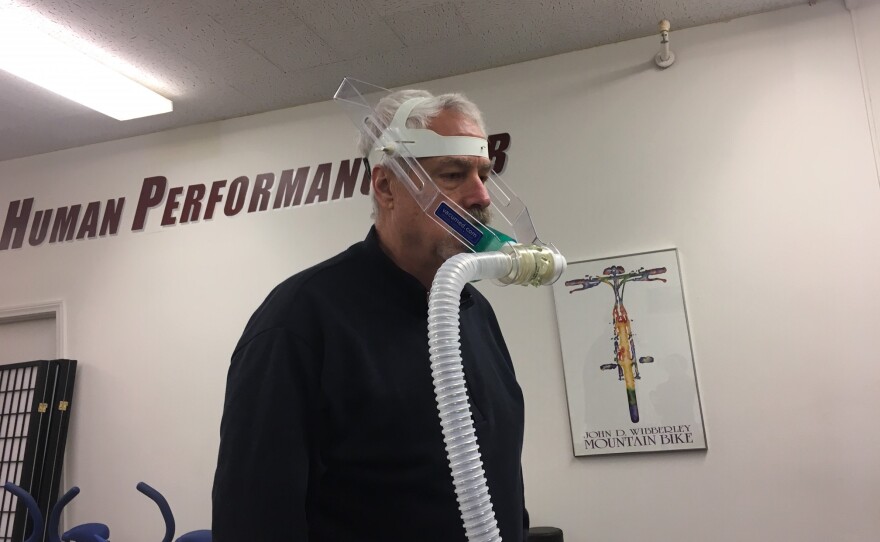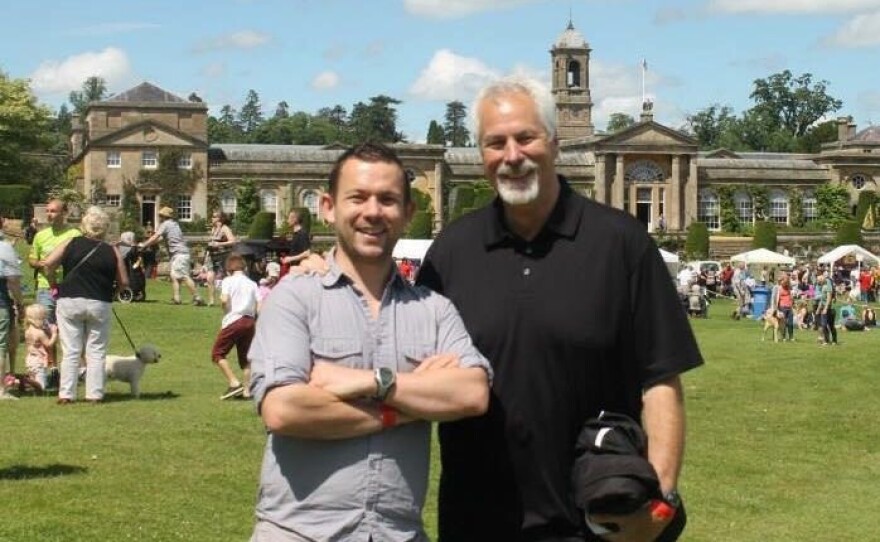You may notice more and more people using standing desks at work. Many of them opt for standing, rather than sitting, for its health benefits.
However, a scientist on the South Coast says his research shows that standing is not as healthy as you would expect. The study found people who stand when working only burn a few more calories than those who sit.
At the Ventura County Animal Services shelter in Camarillo, some employees stand while they do their work, like marketing manager Randy Friedman.
“I just feel like I’m more efficient and effective when I’m standing and working than when I’m sitting,” he says.
He says his standing desk makes him feel healthier.
“I just wanted to be more active. It’s like 8, 10 hours a day I’m here at the shelter working,” he says.
His colleague, Animal Control Officer Brian Bray, feels differently.
“This is my comfy chair,” he says. Bray prefers sitting.
“I have a direct view at my computer. And I’m kind of relaxed when I’m typing, so my heart rate goes down a little bit. And I can kind of focus on my work,” he says.
Studies have long suggested that standing burns a lot more calories than sitting. A recent study conducted by Westmont College kinesiology professor Greg Afman refutes that claim.
“Standing doesn’t burn as many calories as we thought,” he says.
Afman and his students collaborated with researchers at the University of Bath in the United Kingdom on this study, which concluded that only 12% more calories are burned when standing versus sitting.
“It turns out to be about nine calories per hour, which is not very much. It would take about 20 hours of standing to burn one latte,” he says.
This study took a different approach to previous research. Afman says past studies compared sitting and standing when people are motionless.
“Nobody looked at the fact that people don’t sit still, that people fidget. And some fidgeters fidget more when they’re sitting down than when they’re standing up. So, we wanted people to stand or sit naturally,” he says.
He and his research team instructed the 46 healthy men and women who participated in the study that they could move for their own comfort as they lied down, sat and stood before measurements were taken of their expired gases to assess how many calories they burned. Each of the participants wore a mouth piece with a valve. The piece is connected to a computer which analyzes oxygen used.
“If we know there’s a certain percentage of oxygen in the air, which is about 21%. And we breathe out, and in our expired air, let’s say there’s 16%. That 5% of oxygen we used in our bodies to make energy. If we can figure out how much oxygen we used, we can figure out how many calories we used,” Afman says.
He says the research found that people who stand only burn fractionally more calories – about nine more calories an hour which is equivalent to one stalk of celery.
“It’s not enough to really influence the epidemic of obesity that’s going on. To help a person lose weight to get a standing desk is not going to balance that energy equation. You do use a little bit more energy or calories than sitting. Is it enough to unbalance that caloric comparison? Probably not.” Afman says.
He recommends people take a walk.
“Take an exercise break. Get up, move around. Instead of texting somebody in the office, get up and walk to their office. And that would be more beneficial than the change from sitting to standing,” he says.
That’s exactly what Bray, who enjoys sitting while working, does.
“When I’m ready to get up to get my blood flowing again, I’ll get up and walk around,” he says.
And when Friedman, who loves to stand, heard about the study’s results, he chuckled.
“At least it probably strengthens your core. Maybe that’s good as well,” he says.
But, it won’t stop Friedman from being a stander.
“Thanks for telling me. I’m still going to stand because I think it makes me more efficient,” he says.






